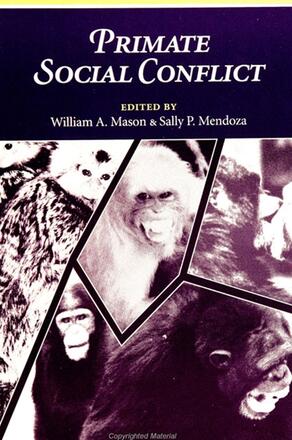
Primate Social Conflict
Alternative formats available from:
Description
This book examines conflict as a normal and recurrent feature of primate social life, emphasizing that the study of aggression and social conflict is important to understanding the basic processes that contribute to social order. The authors go well beyond the usual view which tends to equate social conflict with fights over food, mates, or social supremacy, and analyze the diverse manifestations and significance of conflict in a variety of case studies. Contributors are scientists with field and laboratory experience in anthropology, behavioral endocrinology, ethology, and psychology. Utilizing the growing body of research on life-span development in primatology, the authors offer more extensive analyses of the complexity of primate social relationships.
William A. Mason is Research Scientist at the California Regional Primate Research Center and Professor Emeritus of Psychology at the University of California. Sally P. Mendoza is Associate Professor of Psychology and Research Scientist at the California Regional Primate Research Center.
Reviews
"I like the idea of social conflict as opposed to aggression as such. Too much of the focus on conflict has been on aggressive behavior, which is probably the most striking behavior observed in the field. The fact that conflict does not lead to aggression in all cases, that conflict is generally followed by some sort of reconciliation, and the consequences for fitness and future social life are important topics with respect to non-human primate society that should have considerable relevance to thinking about human social conflict. " — Charles T. Snowdon, University of Wisconsin, Madison